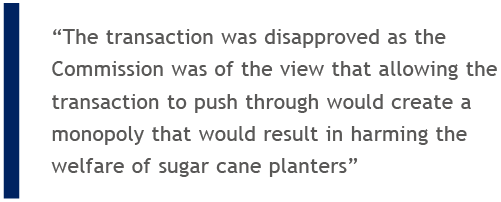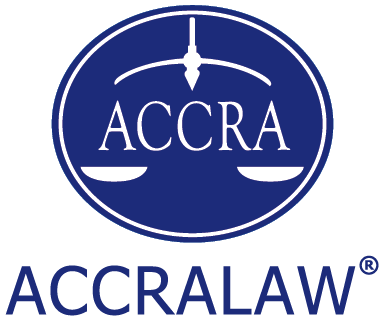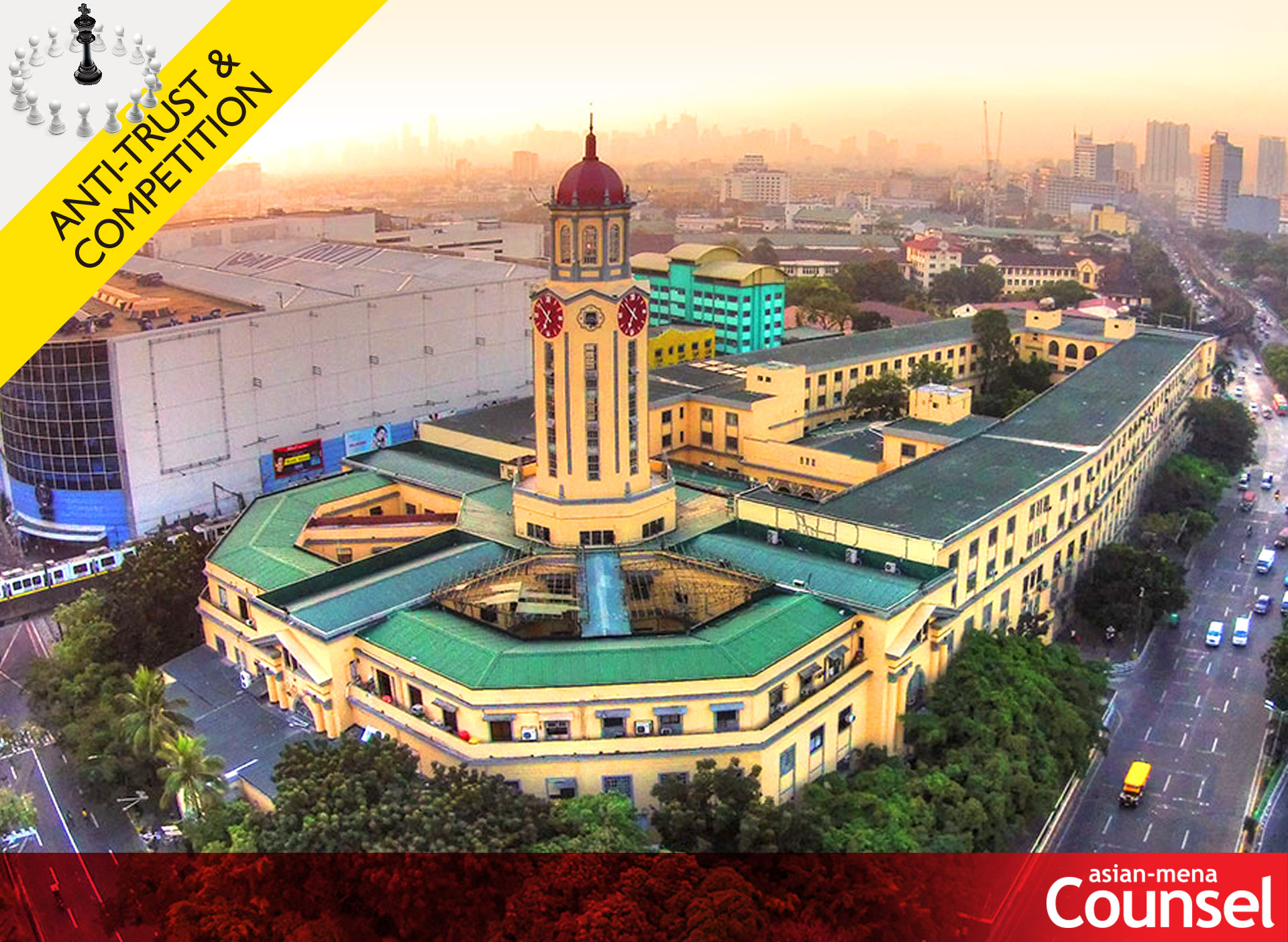 Published in Asian-mena Counsel: Anti-Trust & Competition Special Report 2019
Published in Asian-mena Counsel: Anti-Trust & Competition Special Report 2019
By Francisco Ed Lim, Eric R Recalde, Korina Ana T Manibog, ACCRALAW
For the first time since its inception in 2015, the Commission has blocked a merger after conducting its review.
 It is difficult to imagine that it has only been less than four years since the Philippine Competition Act (PCA) took effect in the Philippines after decades of being stuck in legislative limbo. The law came into effect on August 8, 2015, intended to enhance economic efficiency and promote free and fair competition, prevent economic concentration that will stifle competition, and penalise all forms of anti-competitive agreements, abuses of dominant position, and anti-competitive mergers and acquisitions, with the objective of protecting consumer welfare. It also established the main antitrust authority in the Philippines, the Philippine Competition Commission.
It is difficult to imagine that it has only been less than four years since the Philippine Competition Act (PCA) took effect in the Philippines after decades of being stuck in legislative limbo. The law came into effect on August 8, 2015, intended to enhance economic efficiency and promote free and fair competition, prevent economic concentration that will stifle competition, and penalise all forms of anti-competitive agreements, abuses of dominant position, and anti-competitive mergers and acquisitions, with the objective of protecting consumer welfare. It also established the main antitrust authority in the Philippines, the Philippine Competition Commission.
Despite the relatively short time since the law has taken effect, the Commission has made its presence known. The Commission has spared no effort in conducting information dissemination on the PCA, its implementing rules, and its programs to the public, through various fora, press releases, consultations, targeting not just conglomerates, but also small to medium enterprises, and other stakeholders. The Commission has also provided support to the Philippine Judicial Academy in terms of educating judges and court personnel about this fairly recent legal development.
The stakes are higher now for businesses and practitioners to educate themselves on the provisions of the law considering that some acts and agreements which they were doing prior to the enactment of the law may now raise red flags, and may potentially lead to hefty fines, and even imprisonment.
Since the lapse of the two-year curative period for companies to renegotiate agreements or restructure their businesses to comply with the provisions of the law last August 8, 2017, the Commission has become aggressive in carrying out its mandate under the law. In 2017, the Commission announced that it was conducting probes into the cement, power, garlic and health industries for potential anti-competitive acts. The Commission also indicated potential probes into the manufacturing, agricultural, and transport sectors.

Later in the same year, the Commission started to open Phase II reviews of transactions which raise preliminary anticompetitive concerns. This is significant because when the Commission began conducting merger review, notified transactions were generally approved during the Phase I review. The Commission’s willingness to open Phase II reviews for transactions was a marked sign of its enhanced capability to spot actual or potential anticompetitive concerns during the course of its review in the relevant markets covered by the notified transactions.
Internally, the Commission also worked on streamlining the protocols and procedure to be followed for merger reviews and enforcement actions. The Commission released its rules of procedures on merger reviews, and enforcement against anti-competitive agreements and acts of abuse of dominant position, a move welcomed by practitioners and companies as it provided much needed structure in how merger reviews and enforcement actions are conducted.
In 2018, the Commission flagged competition concerns arising from the takeover of ride-hailing app Grab of its main rival in the Philippines, Uber, and conducted a motu propio review of the transaction. Before it could get clearance for the transaction, Grab had to agree to submit to voluntary commitments relating to quality and pricing standards in order to address the concerns raised by the Commission. Grab was also fined P16 million (US$310,000) for violating interim measures during the Commission’s review. The Commission has continued to monitor Grab’s compliance with the voluntary commitments. As recently as January of this year, Grab was fined once again for providing deficient, inconsistent, and incorrect data for the monitoring of its compliance with its commitments.

Also in 2018, the Commission nullified the acquisition by Chelsea Logistics Holdings. of Trans-Asia Shipping Lines. and imposed a penalty of P22.8 million on the parties for failure to notify the Commission of the transaction. This was the first time the Commission exercised its power to nullify a transaction based on the parties’ failure to comply with the notification requirement under the PCA. The Commission also began fining parties for late filing of notification to the Commission, starting with AXA’s merger, through its subsidiary Camelot Holdings with the XL Group, with the latter surviving the merger as a wholly-owned subsidiary of AXA. Since the parties notified beyond the 30-day period (but before consummation of the transaction), they were fined 0.5 percent of 1 percent of the value of the transaction or P123,861.86. Macsteel Global and MSSA Investments were also fined an amount of P526,219.50 for failure to notify within the prescribed notification period. In 2018 alone, fines for such gun-jumping violations amounted to P31.74 million.
The Commission has not spared government-owned and controlled corporations from being penalised. Earlier this year, the Commission fined the Bases Conversion and Development Authority, a government-owned and controlled corporation, and SM Prime Holdings. for failure to notify on time, with the fine amounting to P2 million.
The PCA authorises the Commission to adjust the notification thresholds from time to time. Pursuant to this authority, the Commission has made considerable adjustments to the merger notification thresholds in recent years. In 2018, it increased the size of party and size of transaction test, to P5 billion and P2 billion, respectively. The year after, the Commission further increased the thresholds to P5.6 billion and P2.2 billion, respectively. This was another move welcomed by many stakeholders as many were of the view that the initial P1 billion threshold was too small. Further, since the load of covered transactions subject to review has been lightened, the Commission can make more efficient use of its time and resources to better scrutinise those transactions covered by the new merger review thresholds.
The Commission also become more aggressive in its enforcement activities, opening eleven preliminary inquiries, nine of which ripened into full administrative investigations. The Commission has identified the following priority sectors to study or probe in 2019: rice, energy, fuel, logistics supply chain, corn milling and trading, refined petroleum manufacturing and trading, sugar, pesticides, baked products, and milk products.

The year 2018 saw the release of various Commission issuances mainly related to merger reviews, such as those guidelines specific to joint ventures, non-coverage, and consolidation of ownership. In 2019, the Commission issued the Guidelines to Pre-Merger Exchanges of Information to regulate the exchange of confidential business information between notifying parties, prior to a merger or acquisition. The Commission is also currently working on updating its notification form template for notifiable mergers.
This year, for the first time since its inception, the Commission blocked a merger after conducting its review. The transaction was a proposed acquisition by the Universal Robina Corporation of the assets of Central Azucarera Don Pedro and Roxas Holdings, all engaged in the sugar milling industry. The transaction was disapproved as the Commission was of the view that allowing the transaction to push through would create a monopoly that would result in harming the welfare of sugar cane planters. Consider this in relation to the first two years of the law’s existence, wherein reviewed transactions were generally approved. The Commission has truly started to bare its teeth.
Another first for the Commission was the filing of a case by the Commission’s Enforcement Office against a mass housing developer for abuse of dominant position by engaging in an exclusive internet service tie-up on its property. In the early years of the Commission’s existence, it was more focused on merger reviews. This case demonstrates that it is ready to be more active in cracking down on cartels and those companies that abuse their dominant position.

The Commission has also ramped up its efforts coordinating with other regulatory agencies and government arms. Currently, the Commission has entered into memoranda of agreement with the Office of the Solicitor General, Securities and Exchange Commission, Commission on Audit, Philippine Statistics Authority, Bangko Sentral ng Pilipinas, Insurance Commission, Office of the Ombudsman, Department of Justice, Public-Private Partnership Centre, Integrated Bar of the Philippines, University of the Philippines College of Law, and the Department of Trade and Industry. These memoranda will greatly aid the Commission in its efforts to establish itself as the main authority on all matters related to competition, and may facilitate the Commission in its information gathering efforts in relation to their investigations and reviews of mergers and acquisitions.
Expect closer coordination between the Commission and the Philippine Securities and Exchange Commission moving forward. The Revised Corporation Code, which came effect recently, has included provisions which acknowledge or require the Commission’s inputs for certain matters. In particular, the Code acknowledges that the Commission may prescribe additional qualifications for directors or trustees. The Code also recognises that increases or decreases in authorised capital stock, and the sale or disposition of assets may also be subject to the Commission’s approval. The Code also allows the legislature to set maximum limits on stock ownership whenever necessary to prevent anti-competitive practices as provided in the PCA.
Interestingly, the Commission has clashed with another government agencies in the exercise of its mandate. In an amicus curiae filed with the Supreme Court, the Commission expressed its discontent over a provision in the implementing rules and regulations of the Contractor’s Licence Law which allows the Philippine Contractors Accreditation Board to licence local contractors on a yearly basis, while requiring foreign contractors to obtain a new licence per project. For the Commission, this constitutes unfair competition as it creates a barrier to the entry of new players, and thus should be nullified. The Commission has also expressed conflicting views with the Energy Regulatory Commission on who has jurisdiction to resolve cases of competition concerns in the energy sector. The Energy Regulatory Commission insists it has jurisdiction as provided under the Electric Power Industry Reform Act of 2001. However, the Commission is contesting this position, asserting its primary authority over all competition matters, even those in the energy sector. A case is currently pending in the Supreme Court, the decision of which is expected to resolve the issue.

The Commission continues to charge ahead. In January of this year, the Commission launched a leniency and whistleblower programme for cartel members, offering immunity from suit and reduction of penalties to cartel members who provide information that may aid the Commission in its investigations. The Commission recently expressed its intention to check allegations of collusion among power plant operators amidst recent outages in the Philippines that may have contributed to price increases in the retail electricity market. It also just recently announced its plans to form a task force that will look into previously-approved mergers and acquisitions. The Commission is also conducting public consultations on its proposed expedited merger review procedure for certain covered transactions.
Companies are slowly learning to live in a world where the Philippine Competition Act exists. They are more careful in entering into agreements and in engaging in activities that may be construed as a violation of the law. Industry and trade associations have also adjusted their rules of interaction lest they be subject to investigation by the Commission. Others, particularly those with frequent acquisitions, are becoming more adept in preparing notifications to the Commission.
Considering the rapid development of competition law in the Philippines, fuelled by the Commission’s efforts to evolve and to build its capability to better carry out its mandate, practitioners must ensure that they are able to keep abreast of all the developments occurring in this field in order to keep up. As many businesses in the Philippines still remain unfamiliar with competition law, they rely heavily on lawyers to guide them navigate the complexities of the Philippine Competition Act. Failure by practitioners to update themselves on advances in this field may prove detrimental and costly to their clients. The state of competition law in the Philippines will continue to grow, and practitioners must grow alongside it.

W: accralaw.com
E: felim@accralaw.com
E: errecalde@accralaw.com
E: ktmanibog@accralaw.com


